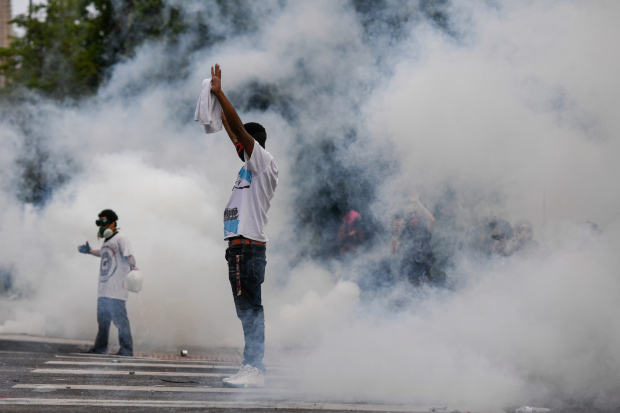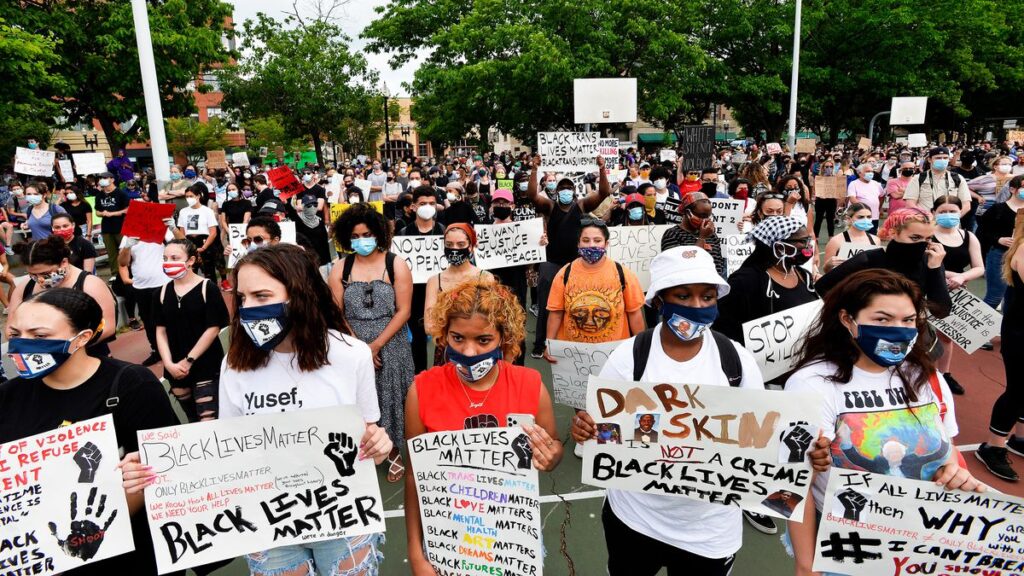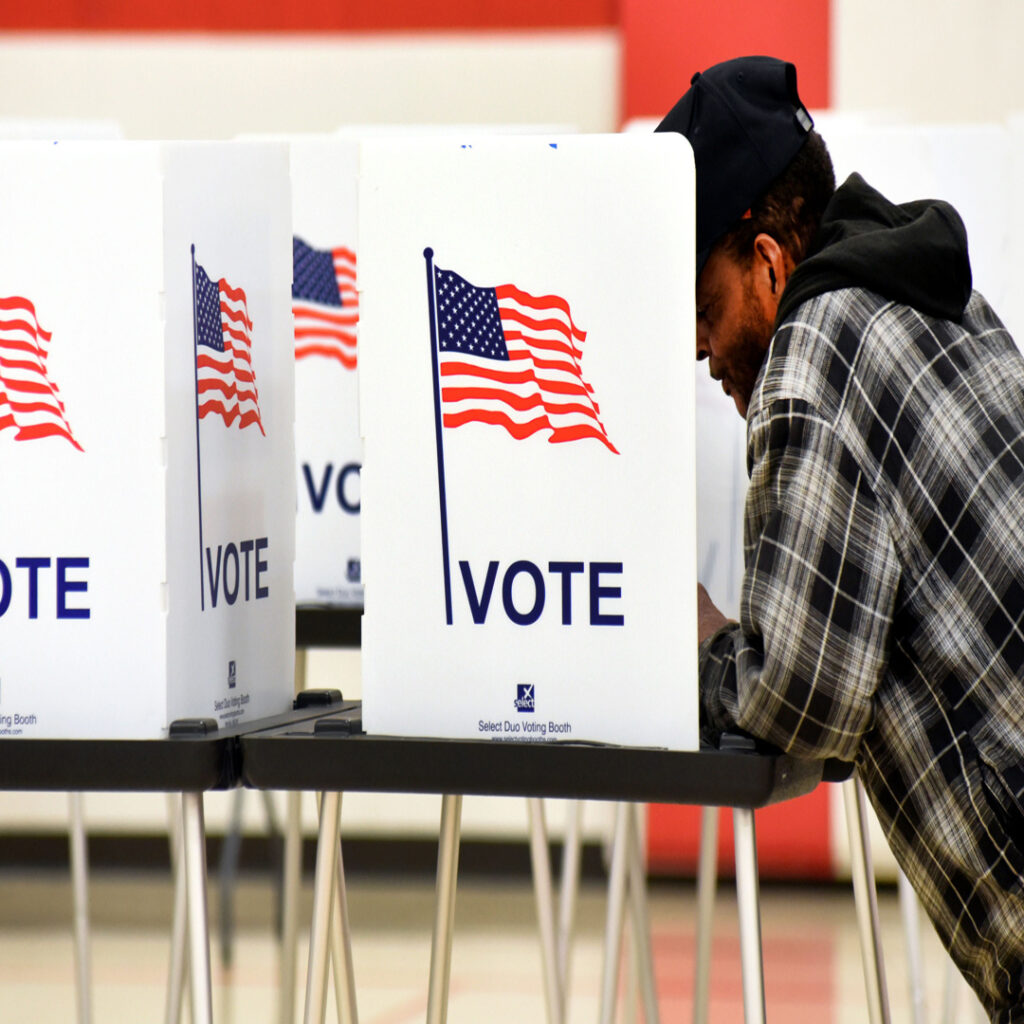
Black people occupy many spaces. We’re so creative and diverse in our gifts and we all have amazing contributions that we can give year round. The outright murder of George Floyd by a former US police officer is infuriating and our community and allies are steadily advocating for change and resolution during this time. But what happens after the protests, what happens after businesses are rebuilt, what happens after the news media slows coverage, what happens after the social media posts are now onto the next big controversial issue?
The fight for justice is a year round movement. It shouldn’t start when a video goes viral and it doesn’t stop when people decide to inevitably move on to another issue. We need year round steps to keep the black community thriving, in peace. We should be continually putting pressure on the systems and representatives to force progression. This isn’t an immediate change, it’s hard work, it’s tiresome, and it can sometimes feel pointless when we see the likes of Breonna Taylor and thousands of others brutally murdered.
But I refuse to lose hope. There’s not or will ever be a “one solution fits all” when it comes to the life, livelihood and livability of the black experience in America, but as aforementioned, we can all double down and utilize our gifts, talents and work ethic to help move us forward. We can all methodically contribute in different ways.
If you feel hopeless and enraged, that’s completely understandable. This post is meant to encourage and evoke ideas and potential solutions on how we can take direct actions on an individual basis all year long for the betterment and future of the black community.
As a communicator by career, this is just part of my contribution, I can’t wait to hear yours.
Invest in your community, literally
Community investing (CI) is a subcategory of socially responsible investing, and it aims to earn returns for investors while contributing to noble causes. Specifically, CI puts investment dollars to work locally to provide safe and affordable housing, job opportunities, education, healthcare, financial counseling, child care and other essential community services. It allows you to direct your investment dollars toward a specific community, often your own. CI also facilitates investment in underserved communities more broadly if there isn’t a specific community you want to focus on.
Like traditional banks, community development banks are FDIC insured, but unlike traditional banks, they focus on serving a low- to moderate-income clientele. You can find banks that the U.S. Treasury Department has certified as dedicating 60% or more of their services to low-income communities at the Community Development Financial Institution website.
Source: https://www.investopedia.com/articles/basics/12/community-investing.asp

Become a mentor
This is a necessity. I have a few mentors and I also have a few mentees who I wholeheartedly consider as family. It doesn’t matter your level of education or career, take the time to pour into the lives of others. We live in an unjust society that often perpetuates an inferiority complex for minorities. Mentoring is an opportunity for you to dismantle that horrid and infectious mindset. Young people need to hear that they are enough and worthy and capable of anything their heart desires, regardless of their circumstance or regardless of how the world may view them.
People need others to believe in them, even if they don’t say it, they do. We all need a support system and village who will lift one another up in the midst of chaos. Mentoring isn’t always easy but it’s about showing up when things are difficult and offering love, guidance, understanding and lessons when no one else is advocating for them. Mentorship also creates an avenue for exposure, you have the ability to introduce your mentee to new ideas, new worlds, problem solving skills and the list goes on.
It doesn’t matter your age, either. I work with wonderful highschool students who mentor elementary and middle school kids. Your impact as a mentor can change the course of so many lives. Mentorship takes responsibility, integrity and loyalty. You can search for local mentoring programs in your community. If you have a well-served community look into underserved communities that may lack resources.

Attend city council/townhall meetings
This is a space for your voice to be heard clearly and without disruption. You can also learn about new bills being passed and hear from other leaders or neighbors in your area. There’s usually a formal agenda to direct the meeting structure and within that agenda is typically time for residents of the community to speak out loud about any grievances. If you are unable to attend meetings, you can write-in your concerns to your district representative or councilman. You can also call and request an appointment with your councilmen/representative.
When you attend these meetings, you can get a better sense of local politics, legislation, the reasoning behind the legislation being passed and how voting happens.
Understand legal terminology
Laws start off as ideas, mere thoughts and eventually develop and evolve into real legislation. Legal jargon is all throughout politics and it can be difficult to understand for the average citizen. There’s a difference between statues, regulations, ordinances and common law. In public records and legislation you will see terms used to describe an action, concept or idea.
Here’s a link to an informative glossary of commonly used legal terms: https://www.uscourts.gov/glossary#glossaryF
Know your district representative
Can you name your district representative? It’s ok if you can’t but, now’s the time to learn. Use this link to find out. Your representative is there to hear your concerns, demands, and help make the change you wish to see.
To pass a house bill you can get your representative to sponsor a bill. This takes research, time and commitment but the reward for change is all worth it. I work with a representative who passed an anti-bully and hate crime bill because the people in her community spoke up. She listened, did the research and took the necessary steps to create new laws. It’s not an overnight process but it’s a step in the right direction.

Protest
We have an absolute right to peacefully protest against injustice under the First Amendment. Protests come in all shapes and sizes, some are large and nationwide like what’s been happening over the past few days and some are small and directive to a specific cause or space. When thinking about protesting, consider the:
- Cause or injustice you are addressing. What’s your why? What results or actions do you want from this? There are many people who infiltrate protests to diminish its impact and authenticity. The “why” is extremely critical when advocating for change and rights.
- Location. Where will you set up? In certain areas and cities there are designated “free speech zones” so it’s important to look into city ordinances that may require a permit.
- Marketing tools, i.e. posters, markers, items that symbolizes the cause. What phrasing or imagery do you want to portray, what do you want the public to see and/or learn about?
- Technology you use when attending protests. Police surveillance can include wireless interception, license plate scanners and facial recognition.
- Strategy. What plan of action can be taken? What happens after the protest?
There’s no perfect way to protest, whatever or however you decide, please be careful and use wisdom. Here’s an advocacy tool kit for fair, safe and effective community policing.

Volunteer your time
There are many issues that can use your support and efforts. You can ban together a clean up crew, help and feed the homeless, volunteer at an animal shelter, beautify your community, supply a community garden, etc. Whatever you are interested in, look into volunteering for that cause or start your own volunteering spree. Either way, the community is stronger when we are all actively engaged.
Advocate for education
Education is the root to change. The public school system in underserved communities is under funded and lacks competitive and educational resources. You can join the school board and attend meetings to understand the diversifying of funds. If you have a child, you can attend the school’s PTA meetings, go to an open house and/or, request a parent-teacher conference. You can join advocacy groups like the National Education Association or the Retired Teachers Association. Support educators, many teachers in these underserved communities have to use their own money for classroom resources. Ask teachers how you can help.
Other requests to consider:
- Ask your community principal if the school has experienced recent budget cuts and how they plan to address them.
- Ask your community school board to require reporting on the distribution of state-certified teachers, education support professionals, and specialized support personnel like nurses, psychologists and social workers.
- Ask your community school board to require reporting by school on actual student expenditures disaggregated by federal, state and local dollars.
- Ask your community school board to require schools to post their budgets online.
- Ask your community school principal to hold meetings on the school budget.
- Ask your community school board to draft multi-year budgets.
- Ask your state elected officials to implement fiscal policies that provide public schools with stable and sufficient funding annually.
Here’s a great resource with additional information: http://www.nea.org/assets/docs/PB_05_School_Funding_Bro_FinalRevise1.pdf

Put the right people in power
Vote…And not just in the big November elections. Despite what some may believe, your voice is power. It does make a difference, you can put people in position to foster change. Get to know the candidate or sheriff that’s running in your community, look up their website and ideologies.
“It’s mayors and county executives that appoint most police chiefs and negotiate collective bargaining agreements with police unions. It’s district attorneys and state’s attorneys that decide whether or not to investigate and ultimately charge those involved in police misconduct. Those are all elected positions.”
Did you know “deputies must have law enforcement training, whereas sheriffs do not always have to have such trainings.” Think about that. An elected sheriff who may or may not have adequate law enforcement training is responsible for overseeing police officers who then enforce the law, which is often racially biased in black communities. It’s like having a President with no political experience…This is why it’s important to elect the right people with real experience, and ideas to help shape this country. We have the power to place the right people in office.
The next primaries is June 9, early voting starts June 5. See you at the polls.
Register to vote: https://www.vote.org/register-to-vote/
Check your voter registration status: https://www.vote.org/am-i-registered-to-vote/
Educate yourself
Take time to really educate yourself on community issues. Is there over policing in your area?
Does your community have an HOA or community board? Join it, or at least go to meetings. You can check out your community website for local events and alerts. If your community doesn’t have an active website you can work with your representative to help monitor or create one specifically for your area. You can use free website builders and I can help, just message me on the Contact page.
Stay informed on legislation (state and federal) that affects educators and public education. One way to do this is through a mobile app called Countable. This app makes it quick and easy to understand the laws Congress is considering. It streamlines the process of contacting your lawmaker, so you can tell them how you want them to vote on bills under consideration. One of the features of the app lets you select which issues are important to you, like education, children, public health, etc.
Source: http://info.retiredteachers.org/blog/how-can-i-advocate-for-public-education

Build mental health awareness
According to the Health and Human Services Office of Minority Health, African Americans are 10% more likely to experience serious psychological distress. African Americans are also more likely to experience socioeconomic disparities such as exclusion from health, educational, social and economic resources. These disparities may contribute to worse mental health outcomes that are often never addressed.
That’s why it’s important to build safe spaces and connect with organizations that understand and empathize with the black experience. We need mental health awareness to be prominent in our communities so we can heal and teach others how to process tragedy, hardship and adversity. If you’re feeling overwhelmed, that’s ok. Here are some black mental health resources:

Donate
You can donate financially to a cause or group. Or you can donate other tangible items like clothes, food, cleaning supplies, gardening supplies, bedding, shoes, hygiene bags, and more!
Shop black: The power of the black dollar
The black buying power has seen impressive gains since the end of the last economic downturn, jumping from $961 billion in 2010 to an estimated $1.3 trillion in 2018. Since 2000, the African-American market has seen a 114 percent increase in buying power.
The boost is the result of a surge in black-owned businesses, increased educational attainment and booming population growth. The percentage of African-Americans who completed college continues to rise (23 percent in 2017, up from 17 percent in 2000), and the population is growing at 22.7 percent since 2000, faster than the national average of 16.3 percent. The youthfulness of the African-American population skews the group’s buying power downward, as a larger share of the population have yet to hit their peak earning years.
Shop locally, and shop and engage with black-owned businesses. You can also visit webuyblack.com.
Source: https://www.newswise.com/articles/minority-markets-have-3-9-trillion-buying-power

Prayer
The most important tool in this arsenal for change. I’ve asked God why, I’ve cried out to the holy spirit with an overwhelming feeling of anger and melancholy, I’ve held grudges in my heart, I’ve gone through so many emotions when it comes to social injustice for black Americans.
Prayer is indeed action. Prayer isn’t silence. I’ve cried to God asking why and how can we heal, asking God to use me in this time of suffering for his will.
It’s numbing. It’s disturbing. It’s common. It’s frustrating. But the peace of God which transcends all understanding will guard our hearts and minds in Christ Jesus.
I pray to God that he changes the hearts and minds of the unrighteous and provide us with discernment on how to move forward as a people, country, and world. Here’s something to meditate on: 2 Corinthians 10:3-6.
I refuse to lose hope. What’s your area of contribution? We all have our strengths, let’s use them together.
Hopefully yours,
Carrie


This is excellent information and I will definitely share with others.
This was needed!! ✊🏾✊🏽✊🏿
This is a blueprint for anyone who needs direction on how to get involved in this movement of strength in our country. Thank you for being a vessel of change, hope, and peace!
FANTASTIC POST! Absolutely love it.. you left no stone unturned! Way to effectively inform your readers and spreading awareness for the things I know you hold near and dead to your own heart (mentoring, volunteering, etc). Very proud of you — looking forward to the next post!
EXCELLENT EXCELLENT read Carrie. Thank you for the suggestions as well as references and links. Amazing write up.
This is so helpful!
I love this! I will be sharing.
Well said Carrie! This is excellent and very timely. Keep up the great work that you are doing. I will share it with others.
This is helpful information! It is important for us to stay informed, especially in these times. Thank you for making this information accessible and easy to read.